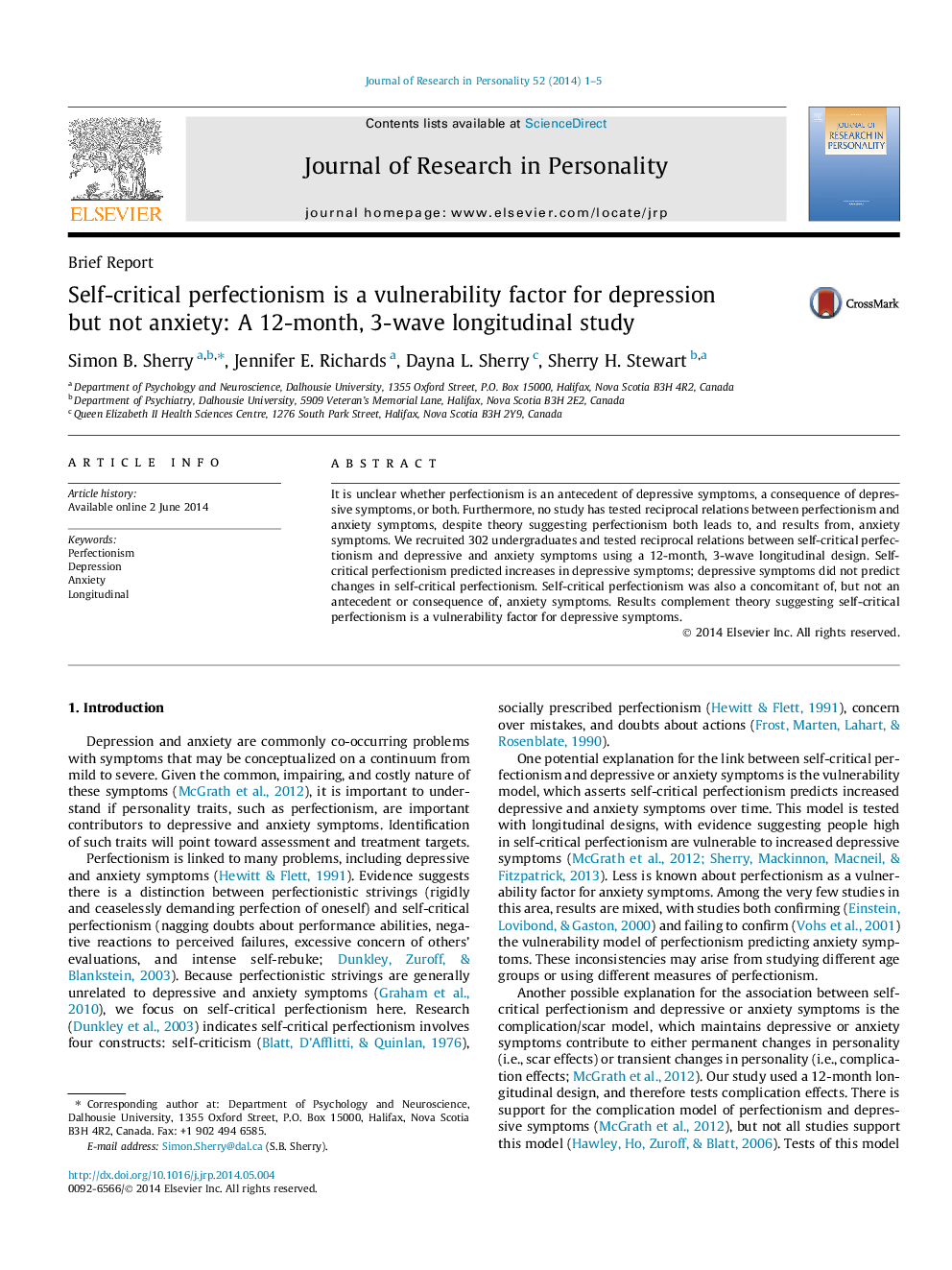| Article ID | Journal | Published Year | Pages | File Type |
|---|---|---|---|---|
| 951299 | Journal of Research in Personality | 2014 | 5 Pages |
•302 Participants were studied using a 12-month, 3-wave longitudinal design.•Cross-lagged path analyses tested for reciprocal relations.•Self-critical perfectionism predicted increased depression (but not vice versa).•Self-critical perfectionism was a concomitant of anxiety.•Self-critical perfectionism may be a vulnerability factor for depression.
It is unclear whether perfectionism is an antecedent of depressive symptoms, a consequence of depressive symptoms, or both. Furthermore, no study has tested reciprocal relations between perfectionism and anxiety symptoms, despite theory suggesting perfectionism both leads to, and results from, anxiety symptoms. We recruited 302 undergraduates and tested reciprocal relations between self-critical perfectionism and depressive and anxiety symptoms using a 12-month, 3-wave longitudinal design. Self-critical perfectionism predicted increases in depressive symptoms; depressive symptoms did not predict changes in self-critical perfectionism. Self-critical perfectionism was also a concomitant of, but not an antecedent or consequence of, anxiety symptoms. Results complement theory suggesting self-critical perfectionism is a vulnerability factor for depressive symptoms.
